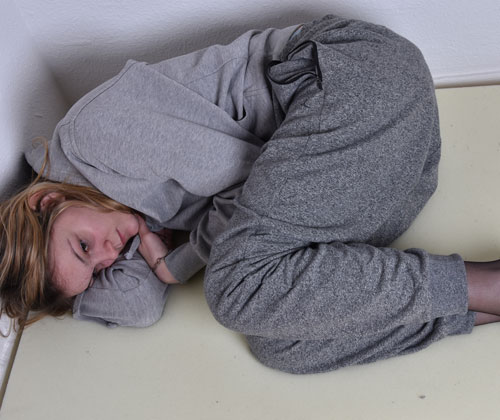Marijuana Addiction
Some marijuana users consume a resin-like substance distilled from the plant that delivers a much more powerful high. This resin-like substance is referred to as “dabs” and is a wax-like substance or a crystallized substance that is usually vaporized and inhaled. Other titles for dabs are budder, wax, and shatter. Dabs are produced in various ways, usually with isopropyl alcohol or butane, both of which are very dangerous.
Marijuana is legal in most states and still illegal in others. Most of the states that haven’t legalized marijuana allow its use for medicinal purposes only. Other states, though, have legalized recreational marijuana, which has caused a rise in marijuana addiction. Medically, marijuana is used for pain relief, stress, and anxiety and increases appetite. Recreational marijuana is used for its calming effects, with street names being pot, bud, dope, ganja, grass, mary jane, reefer, and weed.
Although popular belief would say differently, marijuana is an addictive substance. There are resources and options for those who’ve been using marijuana and require addiction therapy programs to assist with the path to recovery. Marijuana addiction is just as dangerous as an addiction to any other substance. The body and mind can become dependent on marijuana’s effects, making it a risk to one’s mental well-being.
What Is Marijuana?
Marijuana has chemicals that release serotonin from your brain and can alter the mood. Ways to use marijuana include:
- Smoked: Marijuana is smoked in a few different ways, like in a joint, blunt, pipe, or bong. There is also the dabbing method, which is when the user smokes the plant’s oils.
- Consumed: Marijuana can be brewed into tea, processed, or cooked into foods like brownies, cookies, or candy.
- Vaporized: Another form of marijuana consumption is to vaporize the oils.
Marijuana is legal in most states today but still remains illegal in others. Some state laws allow marijuana to be used for medicinal purposes only, while others have legalized it for recreational use.
People use marijuana for its mind-altering effects caused by its main psychoactive chemical, delta-9-tetrahydrocannabinol (THC). This chemical gets the user high and causes users to chase that feeling, causing addiction continuously. THC comes from the resin that is derived from the buds and leaves of the female cannabis plant. These female plants contain over 500 other chemicals with more than 100 compounds referred to as cannabinoids related to THC.

Can Marijuana Use Cause Addiction?
Marijuana addiction can also lead to further substance abuse. Since the 1960s, the amount of THC in marijuana has increased by more than 300 percent, raising tolerance and causing addiction. This higher THC dose found in today’s marijuana can cause an increased risk of addiction.
Research has shown that an estimated 9% of marijuana users do become dependent. The increased rate of marijuana addiction is higher amongst those who start using at a younger age, with about 17 percent becoming addicted. It’s estimated 25 to 50% of people who use marijuana daily develop an addiction.
Marijuana addiction must be clinically diagnosed. Some negative effects of marijuana use include:
- Inability to learn and remember things
- Legal issues
- Lower academic performance
- Problems in the workplace
Ways Marijuana Affects The Body and Brain
Marijuana dependence develops the same way that other substance addictions do. Marijuana addiction starts when the user ingests or smokes it, causing the neurotransmitter anandamide to activate cannabinoid receptors in the brain. THC mimics and blocks natural transmitters’ actions until the user’s body cannot produce an adequate amount on its own.
The brain then begins to reprogram itself, making users dependent on feeling normal. If the user stops taking more THC, they’ll usually go through withdrawal symptoms caused by the lack of the natural transmitter. The urge to stop marijuana usage and the failure to do so are clear signs of addiction.
Signs And Symptoms of Marijuana Addiction
Substance addiction will cause withdrawal symptoms when the user attempts to stop drugs abruptly. An addiction specialist must diagnose substance addiction. Due to current trends of more social acceptance of marijuana use and its availability, older adults’ dependence rates may rise.
Physical and behavioral signs of marijuana dependence include:
- Anxiety
- Distorted perceptions
- Dry mouth
- Fast heartbeat
- Hunger
- Impaired coordination
- Issues with thinking and problem solving
- Loss of control
- Mucus-filled cough
- Problems with learning and memory
- Red, blurry, bloodshot eyes
- Slow reaction time
Effects and Abuse of Marijuana
Marijuana use changes the user’s perception, with the effects being different for each person depending on how consumed. Smoking marijuana provides a quick and short-lived high than ingesting it orally. The effects of dabbing marijuana are immediate and last for hours because of the THC’s concentrated amounts.
The euphoric effects of marijuana include:
- Decreased anxiety
- Feeling happy
- Increased appetite
- Light hallucinations
While there is practically no risk of overdosing on marijuana, it causes the second-highest rates (following cocaine) of emergency room visits. ER visits are usually due to accidents that occur when the user is intoxicated.
Is Marijuana a Gateway Drug?
For a long time now, marijuana has long been considered a gateway drug because of experimentation leading to more hardcore drugs. The observation that marijuana is a gateway drug is caused by adolescent usage because teens are more inclined to try other drugs. As marijuana abuse continues to rise across the nation, teens are using more than ever. Teenagers who use marijuana are at a greater risk of developing a dependence on other hardcore drugs like heroin.
Marijuana Withdrawal Symptoms
Marijuana withdrawal symptoms due to long-term use will usually develop within one week after stopping usage. Common marijuana withdrawal symptoms include:
- Abdominal pain
- Depression
- Headache
- Irritability, anger, or aggression
- Nervousness or anxiety
- Restlessness
- Trouble sleeping
- Shakiness or tremors
- Sweating, fever, and chills
Marijuana withdrawal symptoms caused by suddenly stopping make it very difficult to quit without help. Marijuana Anonymous (MA) says that insomnia is the most common withdrawal symptom, and it will vary for each person. The number of sleepless nights can last days or months, depending on the length and severity of usage.
They also report that depression is the second most common withdrawal symptom, accompanied by vivid dreams and nightmares. Some users also experience anger, rage, and irritability when going through marijuana detox.
Marijuana withdrawal symptoms make it challenging for users to quit. Most marijuana withdrawal symptoms are equal to other issues and conditions; therefore, a professional assessment is required to determine if the withdrawal is caused by marijuana usage.
Marijuana Addiction Treatment
Some people who have used marijuana for a while have trouble stopping without the help of marijuana rehabilitation centers. Similar to any other substance addiction, receiving help is the best way to quit for good.
Marijuana rehabilitation centers offer a few treatment options like inpatient and outpatient treatment, support groups, and counseling. Anyone seeking or considering marijuana addiction treatment should contact a marijuana rehabilitation center to evaluate and determine the best level of care. Get in touch with a treatment provider to learn more.
Treatment options for marijuana abuse are similar to other substance addiction methods. Research has shown that treatment approaches like 12-step programs, cognitive behavioral therapy, and individual therapy can treat substance addiction, depending on the patient’s situation.

Detoxification
This process involves being in a medical environment while weaning off of marijuana addiction. Patients are supervised round the clock and offered medications if needed to withstand uncomfortable withdrawal symptoms. Group and individual therapy are most successful when the patient completes a detox before entering rehab.
Residential vs. Outpatient Treatment
Marijuana rehabilitation centers offer both inpatient and outpatient treatment programs that vary on the severity of the addiction. Residential treatment centers allow patients to stay in the rehab facility for the total length of the treatment, usually 30 to 90 days. The difference between residential and outpatient rehab programs in inpatient treatment provides 24-hour care, supervision, housing, and medical care. If the patient has a severe addiction or severe withdrawal symptoms, residential treatment may be the best option. This round-the-clock care provides a safe place for them as they go through withdrawal.
Outpatient treatment programs allow each patient to return home and report to the rehab center three to five days a week for treatment. These programs range from three to eight hours a day. Patients undergoing outpatient treatment are required to part in group and individual therapy. Outpatient treatment is best for those with less severe addiction and withdrawal symptoms, a solid support system, a good living environment, and reliable transportation.
Get Help Today
If you or a loved one is struggling with marijuana addiction, CNV Detox can help. We have a unique approach to marijuana addiction treatment using evidence-based therapy that includes group and individual therapy, cognitive-behavioral therapy, and round-the-clock supervision.
CNV Detox has an experienced team of licensed medical professionals, administrative staff, and management ready to help. Don’t hesitate any longer; contact us today.
Take the Next Step
The path to recovery is only one step away. Begin your treatment at CNV Detox in Los Angeles, California as soon as the same day. For your convenience, we work 24/7. Our team is ready to help as soon as you reach out.
